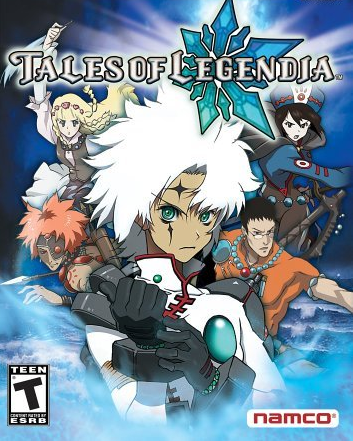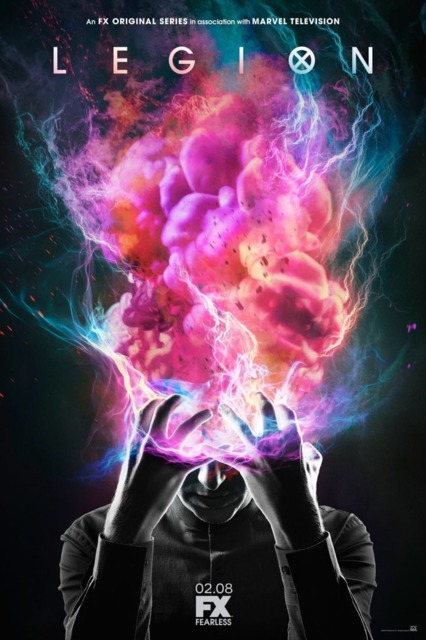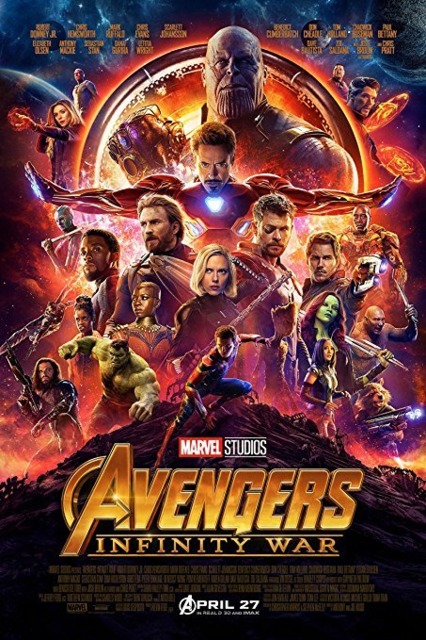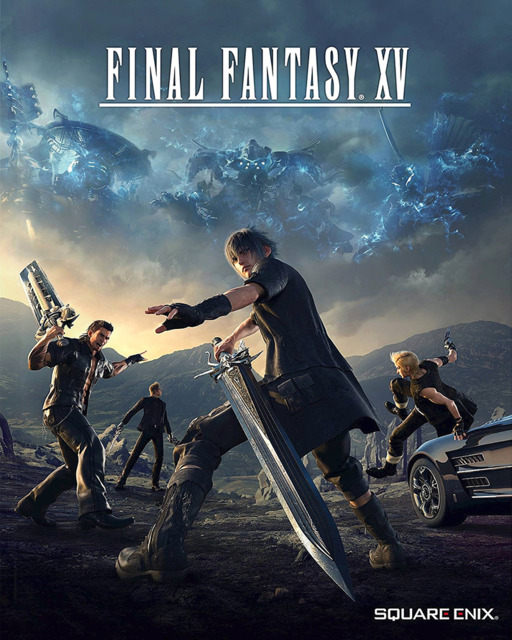May always finds me in a nostalgic mood, largely because I keep choosing to make it the home of a month-long series on 90s PC gaming. I've been considering older console games too, not only due to my May proclivities but also because of the sterling work Microsoft has been doing of late to make its various hits of the past backwards compatible with the Xbox One. I'm not sure there's ever been a games console that can not only play the previous generation's games off the disc, but those of the generation before as well. That naturally has me dreaming of a similar feat from Sony, whose procession of incredible home-runs with console exclusives - the most recent of which being God of War, which I'll need to pick up at some point preferably before GOTY season - has left the Japanese giant perhaps a little complacent. Complacency is what got the PS3 in hot water, so I hope they don't rest on their laurels and continue making backwards compatible PS1, PS2 and PS3 games a priority for the PS4 digital marketplace.

Now, I should make it clear that I made enormous strides in handling my PS2 backlog in 2017 with the year-long "The Top Shelf" feature. It helped me bite the bullet on some of the outstanding games on this list (the second I ever created on the site) and dismiss a whole bunch of others, but there's still several games I intend to find my way back into at some point, such as Digital Devil Saga (and maybe its sequel), Gladius, and those from this special The Top Shelf one-off for "the ones that got away". Ditto for PS1: I managed to squeeze in a lot of that system's best RPGs back in the day, but there many more trapped behind a region-locked barrier or have eluded any English localizations at all. Meanwhile, I signed up to one of those sites that tracks sales that occasionally points to a newly discounted PS3 game - Trails of Cold Steel II is tempting me, as is Yoko Taro's Drakengard 3 and some already purchased games like Tales of Graces F and Yakuza 5. While I know I should just focus on PC, PS4 and Switch games, as all three have more than enough to offer, there's just enough FOMO and great deals on the games of yesteryear to keep me coming back.
While I can't imagine there are a sufficient amount of retro video game fans like myself who want to keep the classics alive to convince Sony to spend the resources needed to go full hog with backwards compatibility, I do think it's ridiculous that they did so much to celebrate their 20th anniversary a few years ago and then in the meantime seemingly abandon their "PS2 Classics" range for PS4 and make almost no effort to get the PS1 games already emulated for PS3 onto the current platform. If they ever nod to their past at all these days, it's to sell franchise reboots like God of War or promote some expensive remake like Shadow of the Colossus or that Crash Bandicoot compilation. Not really bitter, because I understand the need to focus on what your audience wants most i.e. great exclusives, but there's no harm in longing for a more spirited effort from them to venerate the games that put the Sony PlayStation on the map.
And for that matter, when are we getting the Switch version of the Virtual Console? Not that I'm champing at the bit to spend £5 a pop on SNES games I already own, but the Switch has innovated so smartly in so many regards already that I can't help but feel this delay is due to a major restructuring of how the Virtual Console functions to create a more compelling model. I'll refer back to these concepts for "Mega Man Legacy Collection"-style bonus-enriched compilations as a jumping off point.
Enough dwelling in the past for the time being. Let's instead focus on the here and now with this week's assortment of blogs (all of which just so happen to cover games between five and twenty-five years old...):
- The Indie Game of the Week to start May is Deponia, which I probably subconsciously chose because May is already going to be non-stop CRPGs and traditional graphic adventure games, of which Deponia is the latter. The first in a series of five games from Daedalic Entertainment, it's this hand-drawn comedic adventure game that probably lands somewhere between Simon the Sorcerer and Beneath a Steel Sky aesthetically. I was mixed on it, praising some aspects while condemning others, but I'm sufficiently on board to play its sequels at some later juncture.
- This week's single episode of The Legend of Zelda: A Link to the Past randomizer run starring Garflink did enough to lift me out of a slightly desperate tailspin, faced with few places to check for the misplaced items I'd need to complete the rest of the game's dungeons and defeat Ganon. That isn't to say I haven't been enjoying the challenge of being forced to think on my feet and attempt to reach locations through unintended means, but I am somewhat relieved that the lucky finds of Episode VI: To Fat Knight Zone: Help Delete Salad have perhaps given me enough momentum to carry me through the rest of the playthrough. At least until I face Ganon in a few more episodes, anyway. I might just see if I can get a full inventory first...
- The SNES Classic Mk. II went holier than thou this week with Holy Umbrella: Dondera no Mubo and King Arthur's World. The former is a platformer with a lot of eccentric humor and some light RPG elements and spacewhipper traversal upgrades that it perhaps doesn't fully exploit, and the latter is another UK homegrown oddity: a real-time strategy game that is part Lemmings and part medieval military war sim, backed with some clever tech. It's going to be hard to narrow down this master list into twenty-five finalists by the end of the year, even with the highly scientific P.O.G.S. system helping out.
- And if all that's not enough, we also had the first entry of May Maturity this year: an Intro to Might and Magic: World of Xeen, the combined compilation of the fourth and fifth games in the venerable CRPG series. The blog doesn't cover much more than the starting town and its attached quest, but it's a sufficiently deep dive into the systems and mechanics of the last game in the original four-directional "era" of the Might and Magic series, before Might and Magic VI: The Mandate of Heaven took the franchise towards a more panoramic future. I wish I played more of it this week, because the Outro is due Tuesday and I'm sure I'm nowhere close to seeing its conclusion.
Addenda
TV: Legion (Season 1)

I've been apprehensive about getting into "superhero TV", because for as convoluted and overpopulated as the Marvel Cinematic Universe might be, the TV landscape for heroes is tenfold more complex. That's in part because DC has a much stronger presence on TV - the shows that collectively comprise the "Arrowverse" like the Flash, Arrow, Legends of Tomorrow, Supergirl, etc. are all well praised - in addition to Marvel's collection of New York-based Defenders that includes Jessica Jones, Luke Cage, Iron Fist and Daredevil (maybe not so much praise for Iron Fist, but you see my meaning) as well as outliers like Agents of SHIELD and Marvel's Runaways. However, there was one superhero show in particular that everyone said was required viewing, and that was Marvel's Legion.
Set on the periphery of the X-Men corner of the greater Marvel universe (and I'm still not entirely sure where the X-Men now fits in after the Disney/Marvel/Fox mergers), Legion concerns the powerful psychic mutant David Haller and his ongoing treatment for schizophrenia, with strong hints there actually be a reason related to his powers to explain why Haller is hearing voices and suffering delusional episodes. The show messes with the viewer's expectations and its own perception of reality with that mental health angle, putting its audience in a state of confusion similar to David's own, and not making it quite clear what's going on until the end of the season starts putting the pieces together. I twigged onto what was happening fairly quickly, having at least some familiarity with the character and the X-Men universe due to the 90s cartoon, but the way the show creates this puzzle and slowly solves it is nothing short of masterful. It's also gifted with a great cast: the easy-going charm of Dan Stevens, and how that affability can warp when he's under duress or become sinister when possessed, is enough to hook the show on, but it's the supporting roles by his aloof girlfriend Syd (Rachel Keller), his deceased junkie friend and imaginary confidante Lenny (Aubrey Plaza), and the ragtag mutant coalition that took him in to help him understand his powers that really buoy the show. I also like the more comedic character played by Flight of the Conchords's Jemaine Clement during the second half of the season, who I won't get into for the sake of spoilers. I appreciate the uneasy relationship these characters have with this perfectly genial fellow in their midst who is nonetheless a powerful enough psychic to level the planet and might well be crazy enough to do so.
However, what I love about Legion the most is that it knows it's a TV show. I don't mean in the meta, fourth-wall breaking sense, but in how there's certain ways it can tell a story or lead the viewer on a merry chase that is only really possible in that sort of sequential visual medium. I often commend heavily narrative-based games like graphic adventures, visual novels and "walking simulators" when they use the strengths of their native medium to tell stories no other format could. Legion's very much like Mr. Robot in the way they have this unreliable narrator for a main character, one who clearly has a few mental issues but not to the extent where it feels exploitative or insensitive to the real-life mentally unwell, and use that as a launching point to warp reality and play around in the metaphysical and symbolic realms of the mind. The Astral Plane, a concept in the X-Men comics that is utilized here, is a space for all of humanity's collective consciousness where powerful psychics could theoretically congregate and create worlds of their own imagining, but for the presence of a particularly malicious force that twists it into a hostile realm of nightmares instead. It's when shows about psychics really get into the weeds about what each of them can do and their relative levels of strength that I find them entertaining, as was the case with the Mob Psycho 100 anime earlier this year. At any rate, I was sold on it almost immediately and I'll be following the currently-live second season as best as I am able.
Movie: Avengers: Infinity War (2018)

Like half of creation, I went to see the new Avengers movie to witness how the first "season" of the Marvel Cinematic Universe concludes. I'd been looking forward to Avengers: Infinity War because the original Infinity Gauntlet comic book arc was one I'd actually read beforehand; Jim Starlin's meta commentary on the entire Marvel universe and its various and colorful creator deities, put against a villain smart enough to ascend to godhood through a scheme of collecting the Infinity Stones and insane enough to do terrible things with that power. What I loved about the comic most was how it found a place for the superheroes of Earth - the Avengers and the X-Men and the various other organizations and solo crusaders - despite the overwhelming odds placed against them. "Overwhelming odds" is the basis of every comic book story, of course, but Thanos was toppling 2,000 foot tall Celestials and manifestations of space and time from the outset and it left you wondering just how much a strong guy with a vibranium shield could really accomplish against him.
The movie makes some wise choices adapting the Infinity Gauntlet saga for what Marvel's got going on for their movie universe. Thanos, who had long since become a "why should we care about this guy who people keep mentioning?" level of "Gabbo is coming!" meme, is given the lion's share of the characterization and really carries the movie: this first chapter of Infinity War is his story, and despite the congestion takes the time to explore why he is tracking down the Infinity Stones beyond wanting power for the sake of power, and the sacrifices he has made and will make to get there. The forty or so characters of the Marvel Universe, for their part, are smartly grouped together in unusual ways so that we're following about four or five teams and their respective sub-plots rather than some unmanageable mob of familiar faces. That's not to say it's not a butt-paralyzingly long movie with a lot of side-stories to follow and even more character arcs to wrap up, but it's just on the right side of comprehensible. For all you've perhaps heard about downer moments, the movie manages to find a lot of levity between the Guardians of the Galaxy and the usual trenchant wit of the MCU's back-and-forth dialogue. I'd say going into this that there was a strong possibility that the movie could have turned out either too silly, which it might've been if it stayed close to the source material and started introducing oddballs like Mistress Death, Eternity, or the Living Tribunal, or an enormous mess of trying to give all these characters a sufficient amount of screentime for their own moments and commentary. Happily, it manages to evade both issues, slightly altering Thanos's original motivation from the comics (though in a way that perhaps raises some plot holes) and his relative amount of power when he has fewer than the full set of Infinity Stones. Less a God, more an entity that still requires the entire Avengers squad to stand toe to toe with.
At any rate, I'm impressed with how they handled the source material and the characterization of Thanos, as well as his gaggle of sinister followers with whom I was less familiar, and the way almost every major MCU character (there were a few conspicuous absences) received the spotlight for a brief time. It was endearing to see a lot of secondary characters appear for what amounted to minor cameos, like Dr. Strange's associate Wong or Spider-Man's friend Ned. And, of course, there's a very big and very dire cliffhanger for the next movie to resolve in a year's time. I can't wait.
Game: Final Fantasy XV

I know I said last week's Saturday Summaries would be the last time I spoke about Final Fantasy XV, Square Enix's latest entry in their flagship series, but after playing the game a little more this week in intermittent bursts to finish off the few post-game trophies I had left, I felt it deserved something a little more than last week's vaguely conclusive "I liked it but it felt a bit rough in spots", which could be applied to 80% of the video games I've played this year. Without getting too spoilery about story stuff, I just wanted to put a list together of some specific highlights to prove to the world, if nothing else, how deeply immersed I was in this game for a brief time.
- Ignis's puns. I just love Ignis in general. He's come up a new recipe, you know.
- Aranea Highwind and her dropping by every so often for assists. She's a fun, morally gray, mercurial character who is a big help for those nocturnal hunts.
- I really like the way the game factors in the usual summoned deities. Not only are they way more visually impressive whenever they appear, but the game establishes that they all have a far more complex and adversarial relationship with their summoner, befitting the franchise-long conceit of a pet God at your beck and call.
- Focusing on one highly versatile protagonist. Normally I'd be aghast that a party-based franchise like Final Fantasy would put all its Chocobo eggs in one basket, but it works here in the same way it does for Lightning Returns, which I still liked despite its flaws. The game's combat is simply too active for proper full team micromanagement, beyond tossing out the occasional directive for your AI companions to follow. Since Final Fantasy XIII, the franchise has been experimenting with ways to maintain a combat system that could be active and fast but still allow for some tactical management, and Final Fantasy XV continues to get them closer to that elusive equilibrium.
- The odd juxtaposition of open-world and linear segments. I was surprised that Final Fantasy XV decided to have its cake and eat it too, and to some extent I can't help but feel it was precipitated by sudden deadlines for a severely delayed project, but the game does at one point change from the expansive highlands of the Lucian continent to a set of linear locations and dungeons more akin to those seen in previous Final Fantasy games (excepting Final Fantasy XII and the MMOs, of course). You kind of get the best of both worlds, where you could power through the story missions of the open-world portion of the game if you aren't feeling it, and quickly wrap up the railroaded portion of the game if you wanted to get back to the exploring and side-quests.
- I really liked the dungeons in the game. The post-game dungeons, which are simply of the "pass through a hundred identical floors filled with different enemies" variety, were kind of garbage but the rest managed to set their dungeons apart with different puzzles and obstacles to overcome. Some were a bit more tedious and nondescript than others, but even the maze-like sewers of Crestholm Channels or the painful molten rock paths of Ravatogh made for some varied dungeon delving that on the whole were well-designed. I guess the reason I liked them was because they created a strong contrast to the outdoorsy nature of the rest of the game.
- Hunting the Adamantoise was really cool. I swear they make that guy bigger in every game.
- That 100 Cactuar fight was INTENSE. Especially with this playing.
- Crafting your own spells, and the limitations put on them, had this cool effect that - similar to the summoned deities - made magic feel like this absurdly powerful force in the world that few people could ever hope to control. It reminded me of the start of Final Fantasy VI, and how everyone was shocked that Terra could use magic like she was some kind of Goddess made flesh.
- Speaking of, I can never get tired of long-running RPG franchises making callbacks to its past. Final Fantasy XV had a lot of cameos and references, bringing back Tonberries and Cactuars in really annoying new forms (as silly as it was, I loved that Master Tonberries fought like Yoda with all the laserswords and twirling), resurrecting a few notable bosses from Final Fantasy history like Melusine and Chadarnook, and giving you all that old Final Fantasy music to listen to in the car. No Mystic Quest music though? For shame.
- Prompto's photography was a fun idea in the way it gave you all these randomly shot images with various filters. The chaotic nature of this randomization process made Prompto seem like an ADD-afflicted shutterbug, but there were times where I ended up with some neat images to keep for posterity. I particularly enjoyed that a certain divine entity kept photobombing your pictures like an ethereal Brad Shoemaker; it lended a wonderfully zero-context mischievous side to an otherwise underdeveloped secondary cast member.
- The Regalia could be an irksome contrivance, between running out of gas and its less than effective upgraded forms, but I grew attached to the old workhorse before too long. There were times where I was given the option to fast travel to my destination and opted not to, just so I could enjoy the scenery rolling past as they drove their way there (though getting a skill that gave me extra AP for long car journeys definitely helped inspire that decision).
So yeah, there's a lot I appreciated about the game while playing it. I just wish it hadn't ended so abruptly - again, it felt like a case of running out of money and/or time and putting everything into high gear, and it sounds like I'm going to have to read up on those DLC chapters and that Kingsglaive movie to get the full picture, which is a sucky way of delivering vital narrative - and that it could've paced itself better or offered anything like the plethora of modern quality-of-life conveniences that Xenoblade or Ys VIII boasted. Major game features like the crafting system were clearly abandoned mid-integration also, since you find about a hundred unique "monster spoils" items and only ever need a dozen of them. I also concur with the vox populi on the game's notorious "Chapter 13", even if I apparently played a vastly improved version of it after it was patched.
Like Final Fantasy XII, I think its development was far too troubled to ever expect miracles, but I can't help but pine for the game it might've been. And that should be the last I ever have to say about Final Fantasy XV.
Log in to comment